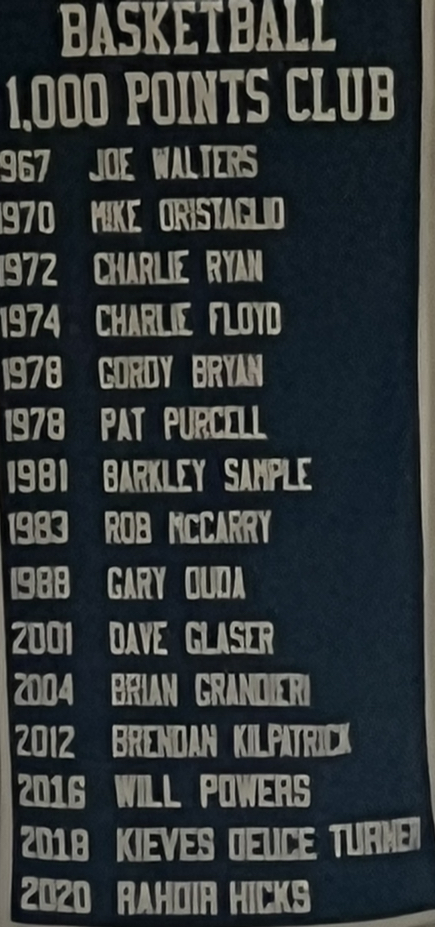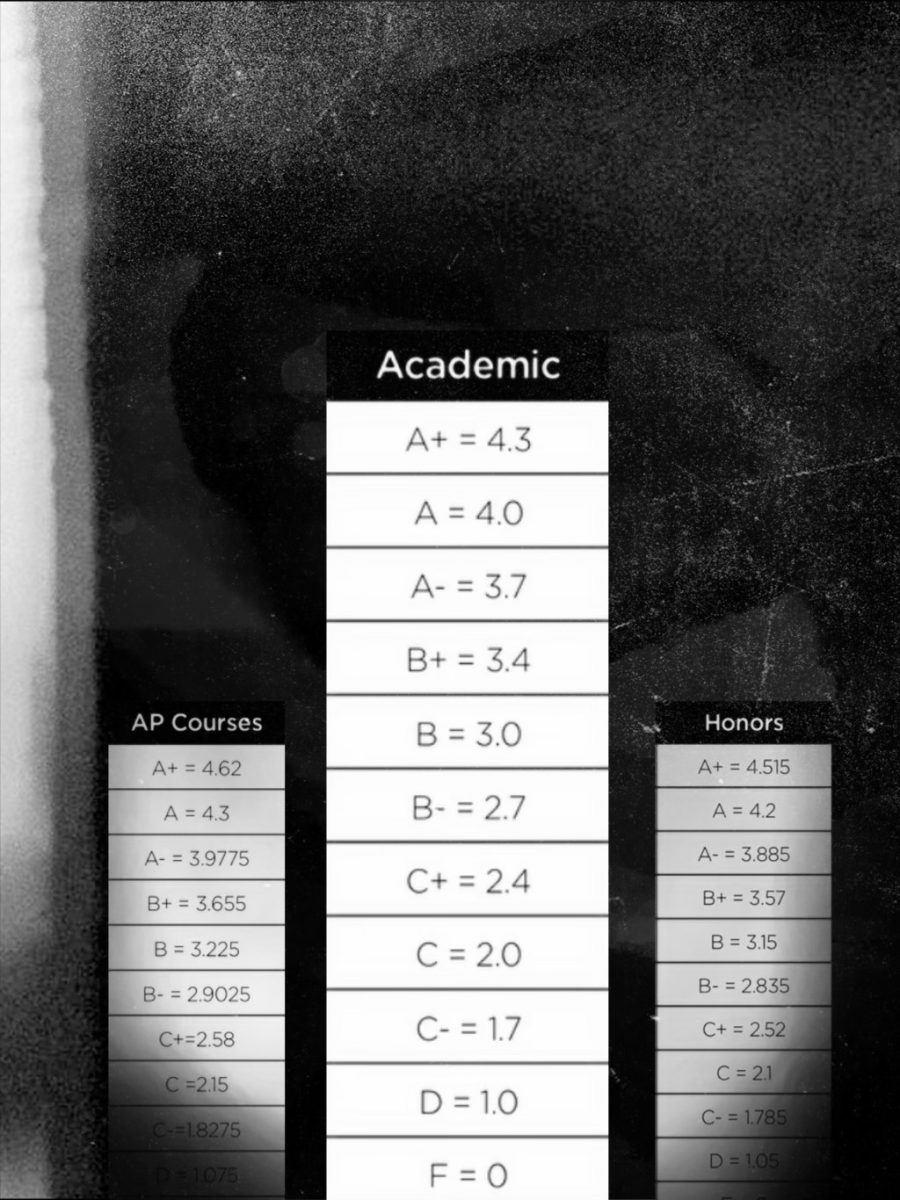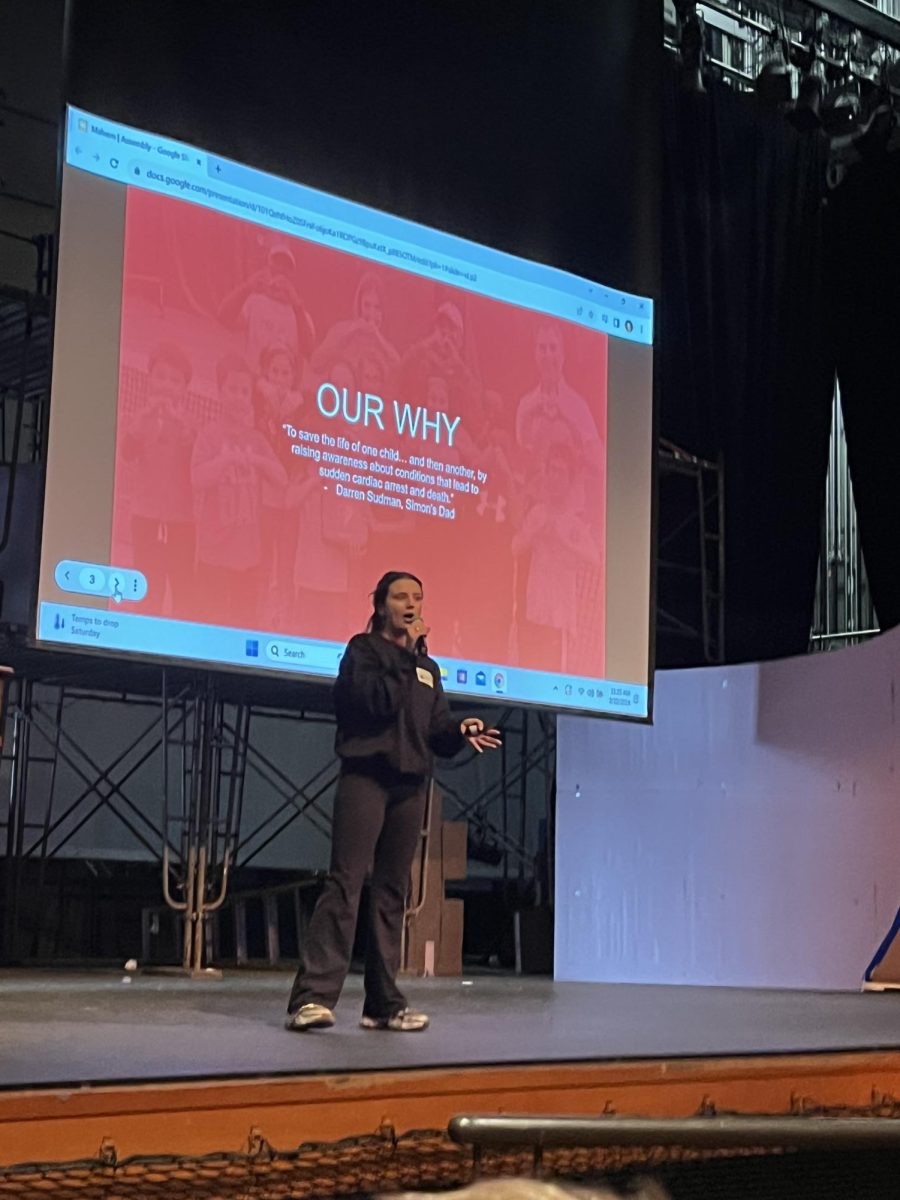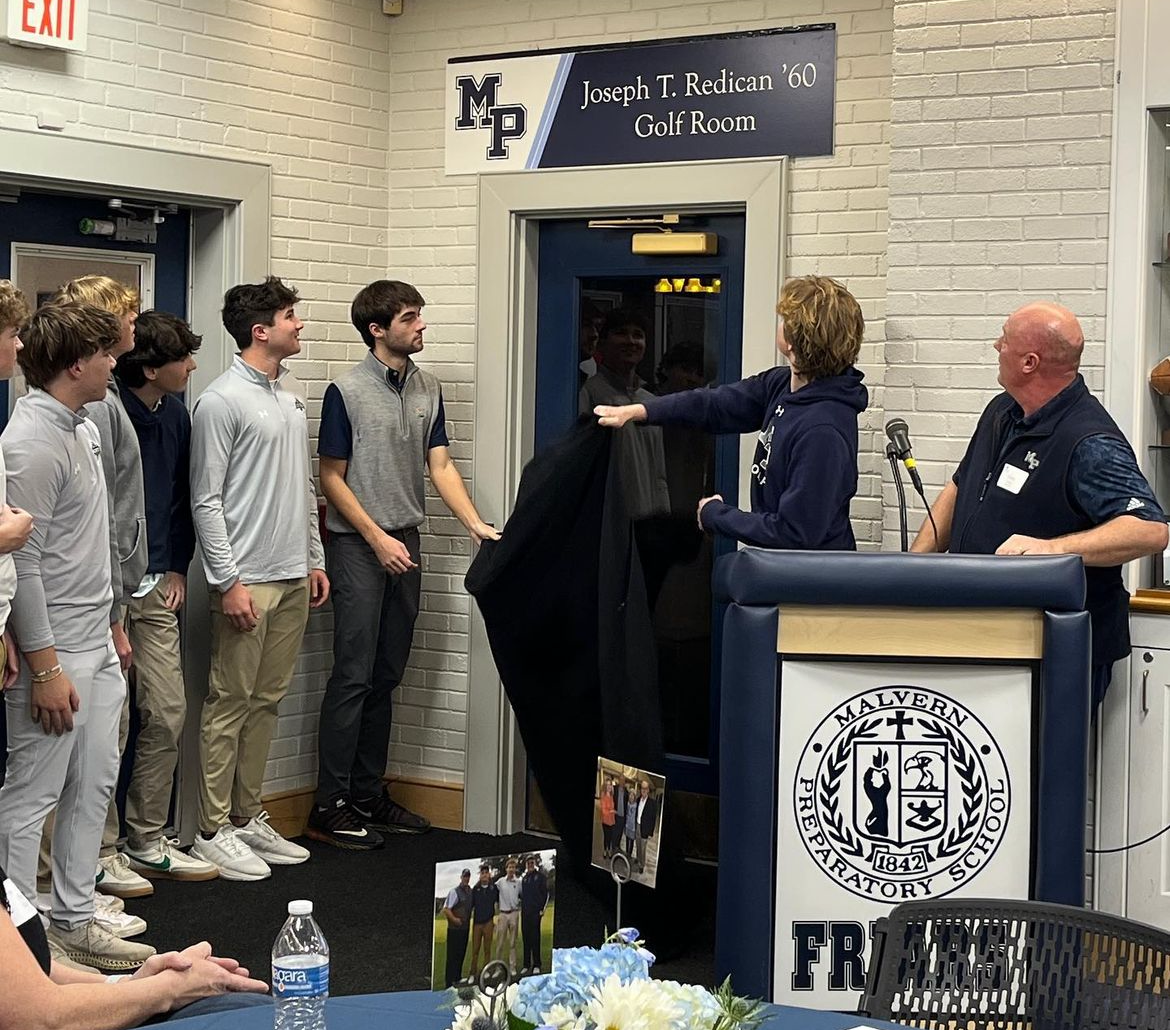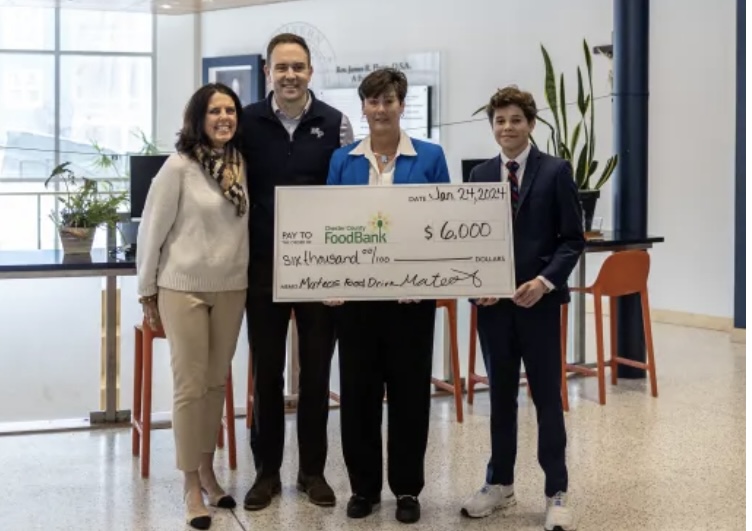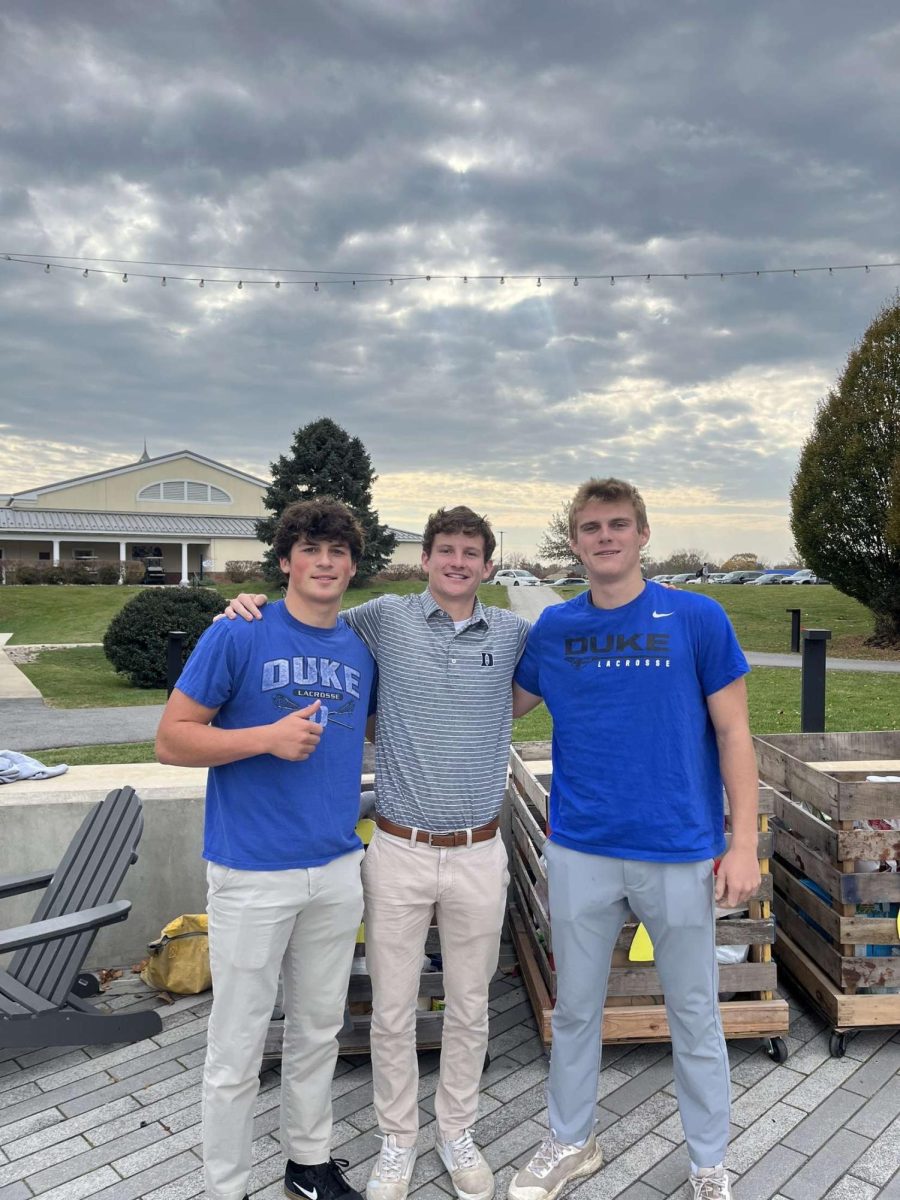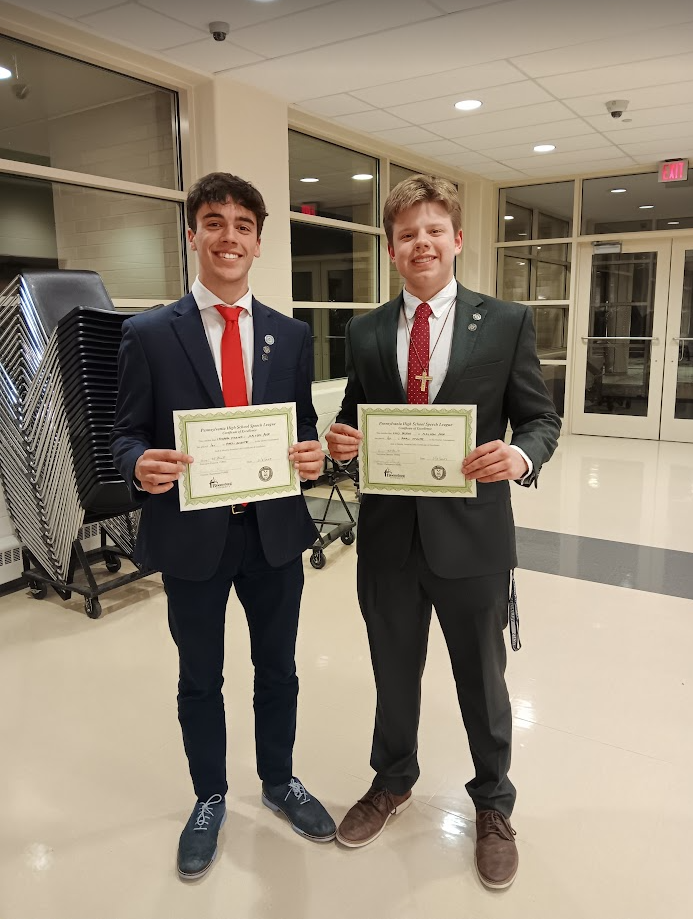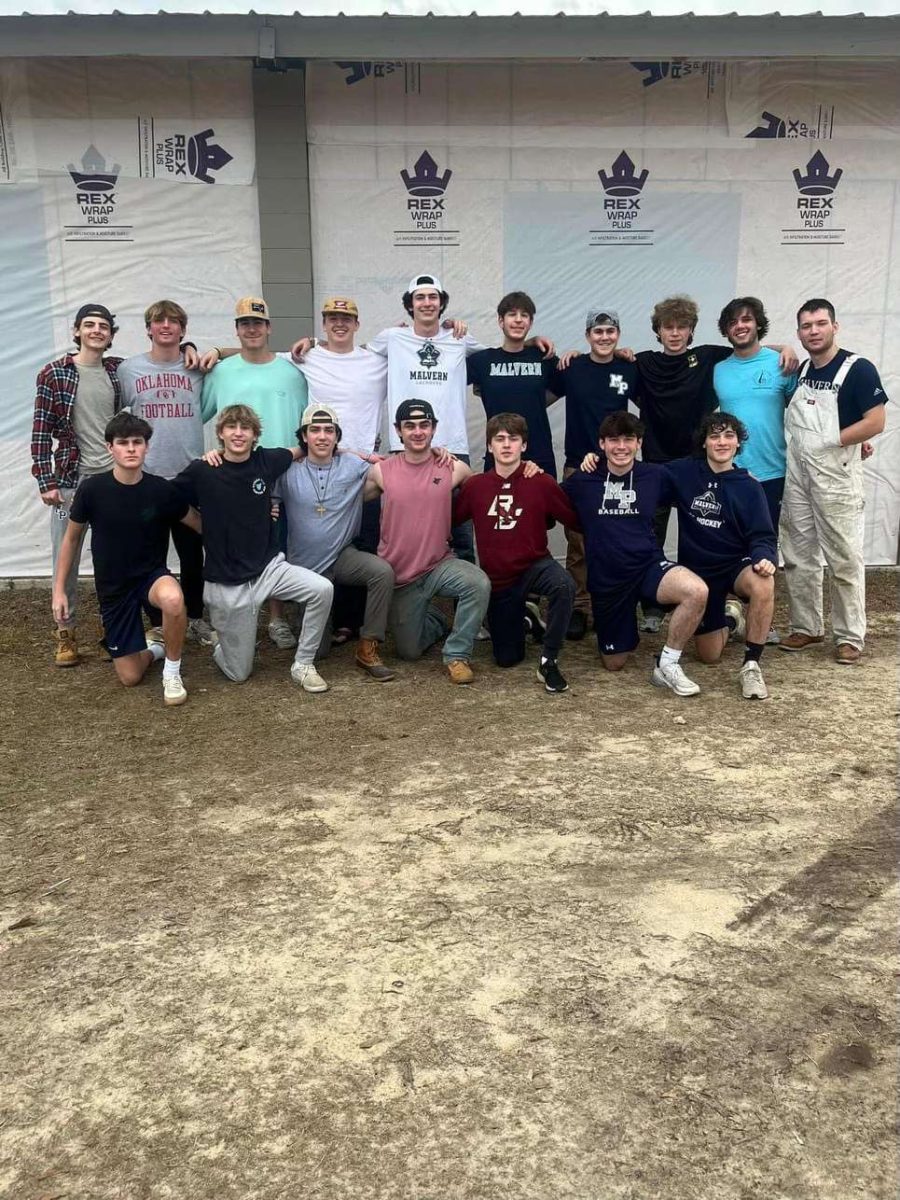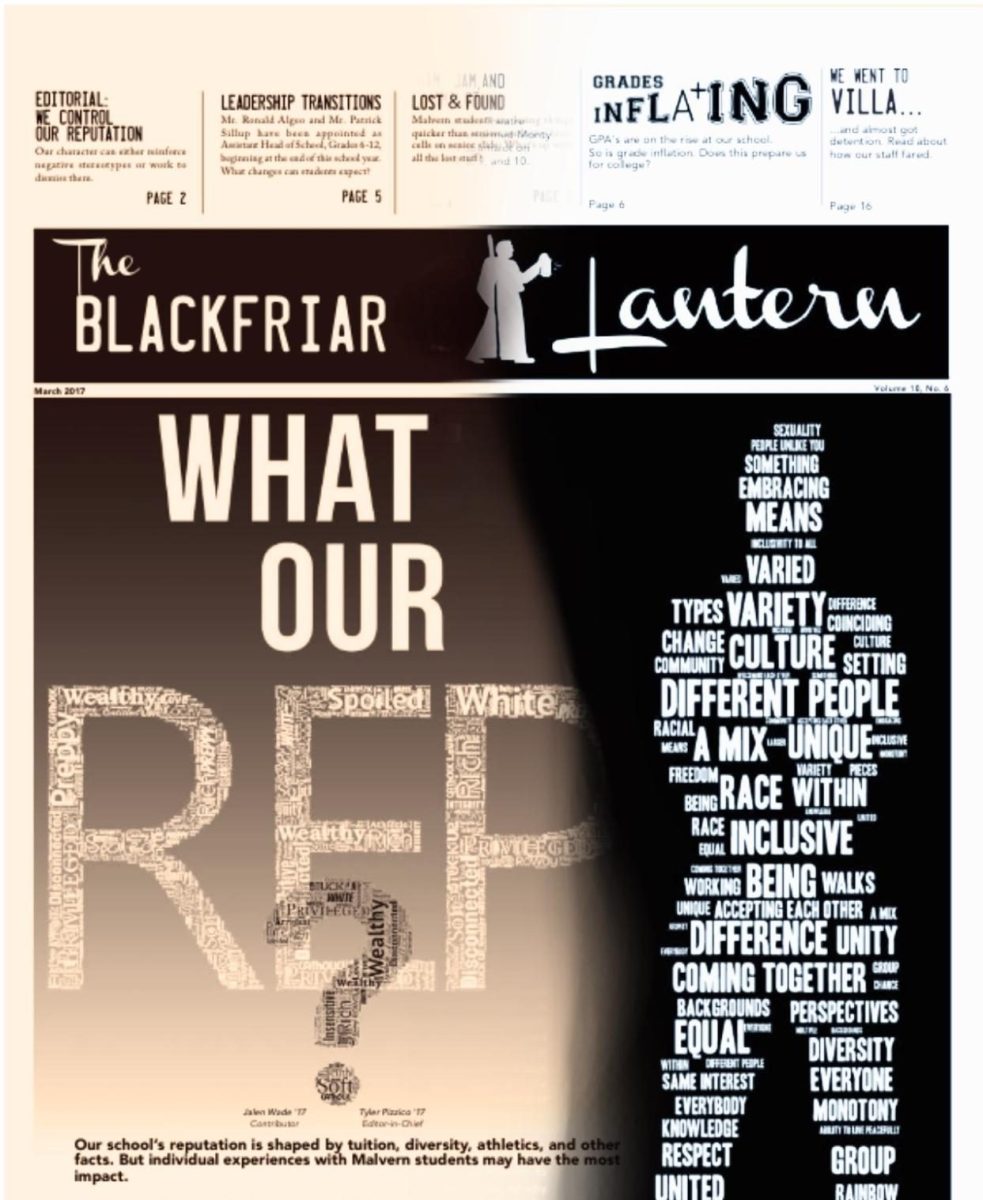Tyler Pizzico ’17, Michael Harrington ’19, Jack McClatchy ’17
The upper school will now foster growth in three different groups of students. The beginning, middle, and end of each Malvern student’s education will have a different focus but the same goal.
Following changes in the middle school, teachers of the Upper School have decided to work together to optimize the experience of each individual Malvern student.
“We knew that it had to be different than the middle school changes because, fundamentally, there are differences between middle schoolers and high schoolers,” Head of Upper School Mr. Ronald Algeo said. “We decided to align the upper school experience with our three values of truth, unity, and love.”
The 9th grade’s theme is unity. “It’s about bringing the class together, teaching them about St. Augustine, the brotherhood, and Malvern,” Algeo said.
Algeo believes once that piece is completed, the students will be ready for themes of truth in 10th and 11th grade.
“Naturally, the 10th and 11th grade starts to drift apart with the classes they take and what not. This is an opportunity to pursue each individual’s truth and interests,” Algeo said. “This piece will probably look different for everyone.”
Finally, the 12th grade is about love and reflection. “The 12th grade will be some sort of reflection or Capstone experience where students can look back on and share their experiences with their brothers and their families,” Algeo said. “This year will be about preparation for college but also remembering each student’s love and appreciation for their alma mater.”
Middle School Head and 9th Grade Academy Leader Mr. Patrick Sillup said the school is hoping for more connections between the faculty and student experience to emerge from the new model.
“Students will see when they go to college that the school is usually separated,” Middle School Head Mr. Patrick Sillup said. “A teacher in the business school can’t empathize with what an engineering student’s day is like.”
“At Malvern we want every teacher from every department to know what it’s like to be a student here so they can make the experience the best it can be,” he added.
9th Grade
 When the team of teachers, led by Mr. Sillup, approached this new idea, they did so in a way most Malvern students are accustomed to. The team approached it just as a student group would approach a collaborative group project.
When the team of teachers, led by Mr. Sillup, approached this new idea, they did so in a way most Malvern students are accustomed to. The team approached it just as a student group would approach a collaborative group project.
They pulled in pieces of student centered learning and turned it into a sort of teacher centered reflection. While each individual’s contributions were valued, the most important thing was working together to make an ideal school environment.
“We started with the idea of who we are as a team and, as a team of educators, how can we best deliver an experience for our students,” Sillup said.
After using the idea of interiority to gather each person’s individual idea, the teachers needed to decide how they could make their ideas tangible and enhance the student experience.
“The next step was for us to collaborate, much like students do here for class projects,” Sillup said. “Once you put people together and start brainstorming you get some really amazing ideas.”
[perfectpullquote align=”right” cite=”” link=”” color=”” class=”” size=””]Regardless of the level each student is at, they must be afforded the same opportunities and focus on the things that best suit them as an individual.
-Mr. Patrick Sillup[/perfectpullquote]
Some of the ideas that came out of brainstorming sessions were a connection to Augustinian values, global literacy, and entrepreneurship. Those have become the key pieces of the Malvern strategic plan. As the school moves forward, it plans to have those three values instilled in each student.
The academy model will help to do that.
“We are a college preparatory school so that means two things,” Sillup said. “We have to educate our students but even more so teach them skills and values that will endure through college and make them prepared for life after.”
To Sillup, something extremely specific like the level of math a student can comprehend is not of paramount importance.
“How does a student that is taking pre-calculus as a freshman work with a student who is taking geometry as a freshman?” Sillup said. “These are the types of questions we debated and we came up with the answer. Regardless of the level each student is at, they must be afforded the same opportunities and focus on the things that best suit them as an individual.”
The team knew that they must set up some boundary conditions, according to Sillup. There had to be a basis established on what is absolutely integral to a student learning experience and what could be done without.
“Student A might have to take a different approach to something than student B,” Sillup said. “If they both end up at the same place that’s terrific. If they don’t, that could be even better.”
The academy model will track students’ progress and ensure students are developing the key skills needed for every aspect of life – including but not limited to the classroom.
However, like Sillup said each student’s story is different and takes time to tell. That’s where the decision to switch from quarters to purely semesters came about.
“At the end of a quarter, you have a report that’s supposed to capture a student’s progress,” Sillup said. “But it all seems really condensed and rushed. For students and even teachers, there often times isn’t time to stumble, learn from it, and get back up in a quarter. There’s only time to fall off.”
For next year’s students in all grades, a formal report of their progress does not come out until the middle of the year. However, this doesn’t mean less communication. It means the opposite, according to Sillup.
“We knew if we were going to do this we had to create ways to have student, teacher, and parent dialogue during that time,” Sillup said. “We came up with a very loose idea that we are calling snapshots. These are ways we can track students’ progress in skills and habits.”
Those snapshots will be discussed in mid-semester meetings with parents and students. Each individual will see what he is excelling at and what he might be deficient in. He can ask questions about how to maximize each opportunity and make strides.
According to Sillup, students will have an ample amount of time to learn from mistakes and make changes.
“This system I feel will be conducive to success,” Sillup said. “We can tell students where they currently are and from then they still have eight more weeks to turn things around.”
As Malvern changes, a big question is if colleges are ready for the changes we are instituting.
“Are colleges ready for us? Well, they’re getting there,” English teacher and 9th grade team member Mrs. Sue Giordani said. “The question is are our students ready for college. The answer will be yes.”
10th and 11th Grade
 To further enhance the personalized learning experience for Malvern’s 10th and 11th grade classes, the Malvern faculty formed a team for is purpose, led by Dean of Faculty Coaching and Development Mrs. Beverly Gordon and Head of School Mr, Christian Talbot.
To further enhance the personalized learning experience for Malvern’s 10th and 11th grade classes, the Malvern faculty formed a team for is purpose, led by Dean of Faculty Coaching and Development Mrs. Beverly Gordon and Head of School Mr, Christian Talbot.
According to Talbot, “The 10th and 11th grade team is focused on further enhancements for when you guys get to that point in your high school career around giving more opportunities for personalized learning.” The team decided that the best way to do this was to focus on the aspects of time, pace, and place.
They asked themselves questions like “Does all learning have to happen at the same time? Does all learning have to happen in the same physical location or place? Does every student have to follow the same pathway when he’s studying a subject or could there be multiple pathways that lead you to the goal?”
One of the team’s goals is to provide a personalized learning to 10th and 11th grade students so that they may become the best versions of themselves.
According to Gordon, the team thinks that there should be a focus on seeking the truth in the 10th and 11th grades. “That’s when you can double down on your content, that personalized learning, that pathway that you want to take,” she said.
Once personalized learning was determined as the overall theme that the team was going to focus on, they wanted to gather some information on how other school have done personalized learning.
“Mr. Quinn put together a folder of dozens and dozens of articles. I think there might be 60 to 70 articles may be,” Talbot said. “Just to provide the team with a baseline set of points of view, perspectives, best practices.”
[perfectpullquote align=”right” cite=”” link=”” color=”” class=”” size=””]I think it’s really important that we ask why we’ve done things the way that we’ve done things. If anything results from this, I think it’s for the better.
-Mr. Stephen Borish[/perfectpullquote]
The folder helped the team members to get a better understanding of personalized learning and helped to form their future decisions. “He put together a folder that allow allowed everybody on the team to see how personalized learning is being done in different places. And it is done very differently in different places,” Talbot said.
The team examined other schools and found a strong style of personalized learning that is unique to Malvern. “I think the most important thing for us is that how we define that personalized learning has to fall in line with what Malvern wants,” Gordon said, “We may look at others, but we really want to make sure that it’s defined by Malvern.”
Team member Mr. Stephen Borish thinks that progress is going well for the team and he thinks that what they are doing is a good thing. “I think it’s really important that we ask why we’ve done things the way that we’ve done things. If anything results from this, I think it’s for the better.”
Even though he thinks it’s a good thing, it doesn’t mean it’s an easy one. There are a lot of questions that the team needs answers and more progress to be made.
“There are just a lot of questions that we don’t have the answers to right now, at least for 10th and 11th,” Borish said. “It’s tough. It’s a really hard process, but it’s good. It needs to happen.”
A huge development for all of the academy teams is the J-Term. According to Borish, there is a very good possibility that this will be initiated for the 10th and 11th grade as well next year.
“I would say that it’s almost 100% that yes that will happen. I don’t really see a situation where you could have the freshmen having a J-Term and the rest of the school not having it,” Borish said, “We just have to figure out what it will look like and the possibilities that are there for students.”
The team still has not formed a concrete idea of what that time period will look like or will he used for. They have to take into accounts downsides of this time period and how they can make it most beneficial for students.
“The biggest complain with having a J-Term is it cuts time from the semester. Another concern is how do we… ensure that students leave or walk away with a diverse experience, not only a depth of knowledge but an interest level that can allow them to make decisions,” Borish said.
One possibility of what might be done with the time is that 9th graders will have a more supervised J-Term with less independence on what they do during that time, while older grades get more time to pursue what they want to pursue.
“Once they have exposure with that type of environment, it’s really their time. They have to manage it the way that they need to, giving them the opportunity to explore something in their own,” Borish said, “I think that’s a good possibility of something that might happen in the future. It’s still all up in the air.”
Borish doesn’t know what will happen in regards to the 10th and 11th grade enhancement, which makes him feel both nervous and excited at the same time.
“I’m apprehensive because I don’t like not knowing what will happen in a couple of years,” he said, “but at the same time I have faith that we all are working in the student’s best interest and that no matter what happens the program that we create will be a success.”
12th Grade
 For the 12th grade level team, Head of the Upper School Mr. Algeo said that the theme that they want to explore is how seniors will reflect on their Malvern experience.
For the 12th grade level team, Head of the Upper School Mr. Algeo said that the theme that they want to explore is how seniors will reflect on their Malvern experience.
Unlike the other grade level teams, there is no official leader of the 12th grade level team.
“I did not want to be in there as the person that’s going to have some ideas and force it down the team’s throat,” Algeo said. “I certainly have ideas, but they’re no more valuable or important than anyone else’s.”
Algeo said that there won’t just be a reflection, but an opportunity to showcase what they’ve done at Malvern.
“[We’re] providing an opportunity and an experience for 12th grade students to really reflect on their time and really kind of present that in a nice clean package,” he said.
Algeo said this can be through activities such as performance art, Christian service, or entrepreneurship. He also said that this package can be used beyond Malvern, such as showing it to a college admissions representative.
“Right now we’re using the term capstone,” he said. “We’re not even sure what that means yet for us. We’re looking to define that. We want this to be for the students, not from us.”
[perfectpullquote align=”right” cite=”” link=”” color=”” class=”” size=””]You can’t just dump this on their shoulders and say ‘here’s one thing you have to do. This has to be in support of what they’ve already been doing.
-Mr. Ron Algeo[/perfectpullquote]
The idea of the capstone experience is not to combat the “senior slide,” but to allow for reflection and feedback on a student’s Malvern experience as it comes to a close.
“Are we providing an opportunity for our students to really reflect on their experience at Malvern and be able to share that with somebody?” Algeo said. “Right now the answer to that is no. If we’re an Augustinian school, we feel that should be a responsibility of ours.”
The team has reached out to survey current seniors, alumni currently in college, parents of seniors, and alumni who recently graduated from college to try and find a common thread in the feedback and reflections on the Malvern experience.
“We’ve collected that data, and we’ve begun to look at the data,” Algeo said. “And we’re saying ‘How can we use these responses to inform what we want to design?’”
The team, however, does not want to put this on to seniors who already have a lot on their plates.
“You can’t just dump this on their shoulders and say ‘here’s one thing you have to do,’” Algeo said. “This has to be in support of what they’ve already been doing. We want this to be authentic and we want them to feel like they can buy into this and it isn’t just another burden to get done so they can graduate.”
What the 12th grade team is working will build on what the Middle School does with its academies, but it is not going to be a replicate of that experience.
“Developmentally, there are things you will do with 11 year olds that you won’t do to 17 and 18 year olds,” Algeo said. “You’re just in a different place.”
One idea that the team is considering is building on an idea proposed in the 9th grade level team.
“In some schools that do capstones that we researched start a portfolio in 9th grade,” Algeo said. “Coincidentally, the 9th grade team is doing portfolio work next year. We thought it fits with what we’re doing, and that by the time they get to twelfth grade we can use these as a tool for reflection.”
Although the timeline for the 9th grade level team is locked in for beginning next year, the 10th/11th and 12th grade teams are a bit more fluid in their timeline.
“The timelines are a little gray for these teams,” Algeo said. “Some things may get rolling next year, but some may start with the 9th grade next year.”


